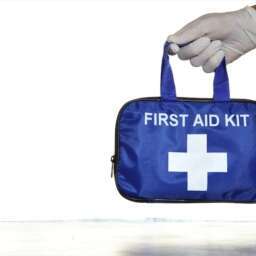(Business in Cameroon) – On July 31, 2025, President Paul Biya signed three decrees authorizing the Minister in charge of Economy, Planning, and Land Management to secure loans totaling 125 billion CFA francs. The funds will come from the African Development Bank, Standard Chartered Bank, and the OPEC Fund.
This amount represents nearly one-third of the budget deficit projected under the 2025 Finance Law. The loans are backed by a public debt that stood at 14.105 billion CFA francs by the end of June 2025, or 43% of the gross domestic product. While this ratio remains below the 70% ceiling set by the Central African Economic and Monetary Community, it is increasing each quarter.
The additional 125 billion CFA francs added in a single day represents an extra 1.3% of GDP. This amount will be added to the 1,259 billion the state must allocate to debt servicing between 2025 and 2027. However, the loans are directed toward critical sectors—agriculture, health, and youth employability.
The first loan, totaling $25 million, or nearly 15 billion CFA francs, was signed on June 17 with the OPEC Fund for International Development. The five-year project targets the rice value chain, from seed to market. Authorities hope to produce an additional 120,000 tons of paddy rice, primarily in the irrigated areas of Yagoua, Ndop, and Nanga-Eboko.
The goal is to reduce imports by $50 million annually by phasing out purchases of Asian rice. The government estimates that every billion invested in the sector will generate 1.8 billion in indirect tax revenue through import substitution.
Health Infrastructure and Youth Development
The second loan provides 23 million euros, or 15 billion CFA francs, from Standard Chartered Bank in London with a guarantee from UK Export Finance. This funding will support the construction of a 200-bed gastro-pulmonary hospital in Yaoundé-Jamot and a 150-bed psychiatric hospital in Mfou, southeast of the capital. The cost per bed is 42.8 million CFA francs, which is below World Health Organization standards for tertiary facilities.
Health authorities expect these hospitals to reduce treatment costs abroad by an estimated $10 million annually and create 1,000 direct jobs. The primary challenge remains a shortage of specialized staff, as the country has only 0.04 psychiatrists per 10,000 people, well below the WHO’s recommended minimum of one.
The third component is dedicated to the Far North, the region with the highest poverty rate in the country, where 74% of the population lives on less than $2 per day. The African Development Bank will provide 136 million euros, or 95 billion CFA francs, for a skills and employability enhancement program. The plan is to train 35,000 young people—half of them women—and support the creation of 10,000 micro-enterprises across eight departments.
The concessional financing features a 1% interest rate over 30 years with a 10-year grace period. It also includes a state contribution of 5 billion and 3 billion in technical co-financing. The goal is to reduce the youth unemployment rate in the region by two percentage points and mitigate the effects of forced displacement. According to the Office for the Coordination of Humanitarian Affairs, 322,000 people have already fled violence from Boko Haram.
If these projects meet their targets, the country could reduce its cereal trade deficit by 30% and create tens of thousands of direct and indirect jobs. However, the Directorate General of Budget has reiterated that every borrowed billion must now be matched by a billion in future revenues to avoid turning today’s loans into tomorrow’s deficits.
IL

































